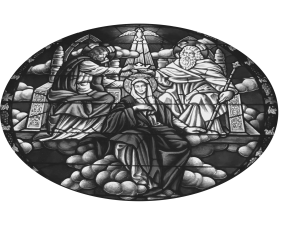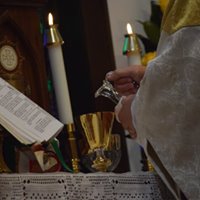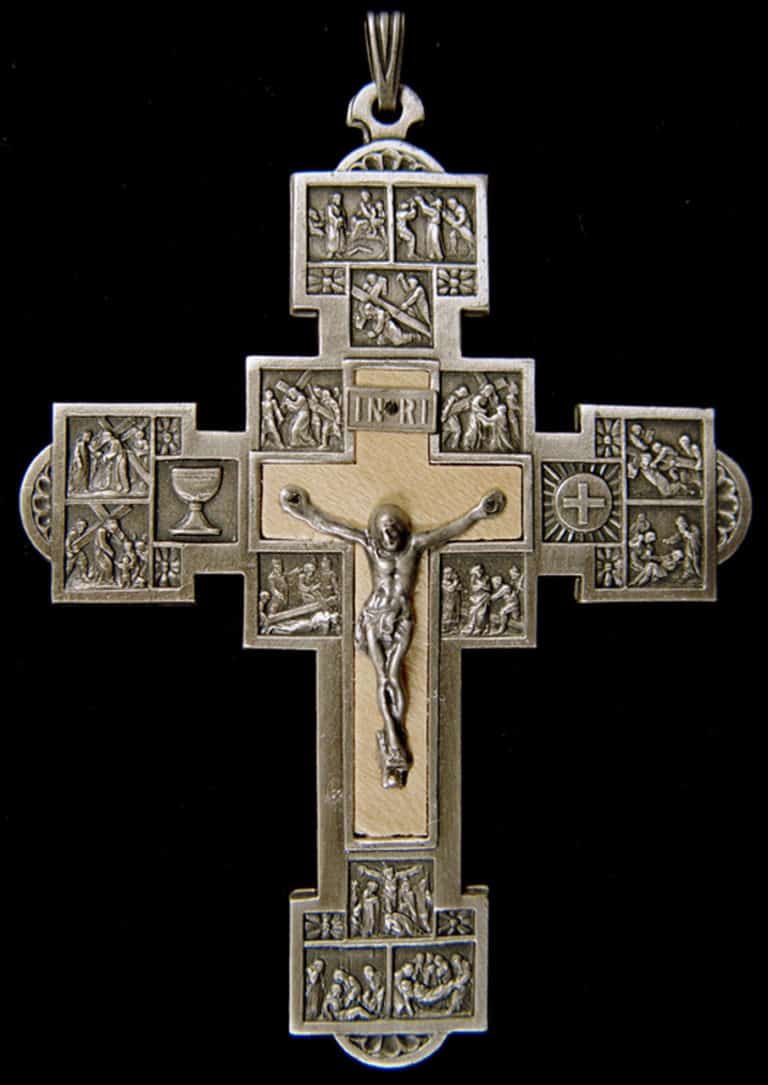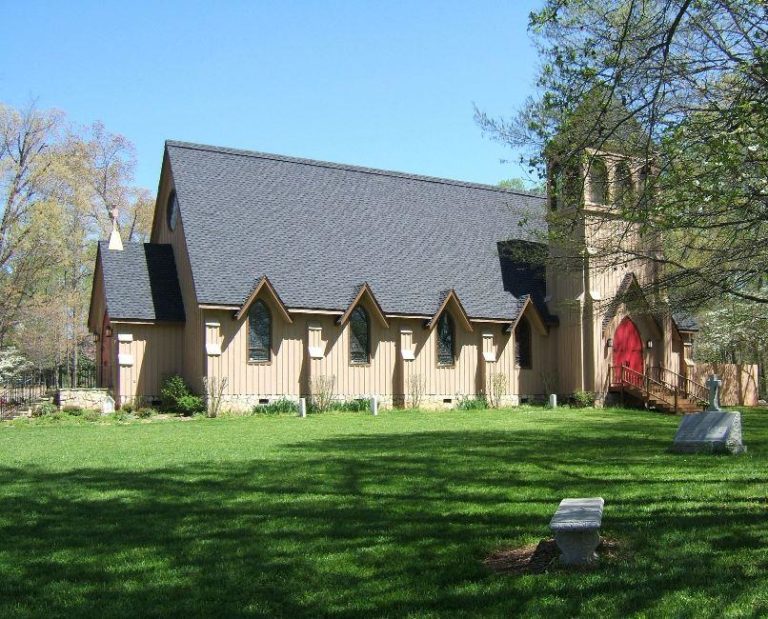On The Bible, The Church, and Mary

ON THE BIBLE, THE CHURCH, and MARY
The Rev’d. Stephan W. Heimann
Anglicanism has always had a sort of “split personality” when it comes to the Blessed Virgin Mary, Mother of our Lord and Savior Jesus Christ. There have been a number of well-known Anglican writers, especially among the theologians of the seventeenth and nineteenth centuries, who have shown true reverence for Mary, and labeled her “the Joy of All Creation.” On the other hand, there is often among Anglicans a fear of paying any attention to Mary (except at Christmas time) as a reaction to some of the excesses and perceived superstitions of years past. This little pamphlet is an effort to foster some healthy balance in our consideration of the Blessed Virgin Mary.
At the very least, we should hold in high esteem the life of Mary, for its countless examples to us how to live our lives. She was chosen by God the Father to be the bearer of His only-Begotten Son. She was the vehicle of the Incarnation. Her response to this wonderful news (of the honor to be given to her) was one of instant acceptance and humility. “Mary said, ‘I am the servant of the Lord; let it be as you say” (Lk.1:38). In the Visitation to her cousin Elizabeth, she responded to praise with utmost humility; giving no glory to herself for what had been done, but to God (Lk.1:42-55).
Mary was the perfect example of faithful and diligent motherhood. She was faithful in observing the religious obligations which pertained to her Son – presenting Him for circumcision on the eighth day (Lk.2:21), dedicating Him to God’s service as was the obligation of the first-born (Lk.2:22-24), and for the recognition of His mature manhood when He was of age (Lk.2:42-43). We read later that “Jesus, for His part, progressed steadily in wisdom and knowledge, in favor with God and man” (Lk.2:52). All who have been, or who have had faithful parents know what an important part a mother’s love plays in the overall progress of a child, especially in spiritual matters.
Mary was responsible for our Lord’s first miracle – the changing of water into wine at the wedding feast of Cana. She teaches us that a requirement for God’s action in our lives is our perfect obedience, for she counsels the men of Cana, “Whatever He tells you to do, do it” (see Jhn.2:1-12).
Mary exhibited steadfastness in her faith and devotion. At the end of His life, when all the disciples, except John, had deserted Him and Peter had denied even knowing Him, Mary followed our Lord to the Cross and stood beneath it until His dying breath. It was there that Jesus said to John (and to the Church) who stood faithfully beneath the Cross, “Son, behold thy Mother” (Jhn.20:25). After the Ascension, the disciples gathered around Mary and remained in prayer until the day of Pentecost, at which she was present (Act.1:14).
In the life of Mary, as it is presented in the Gospel accounts, we are reminded of the many virtues she so willingly exhibited, and are challenged to imitate her attitudes and actions: acceptance of God’s will, humility, faithful motherhood, compassion for the needs of others, an exhortation to obedience, steadfastness, and prayer (including prayers of intercession).
In some of the narratives on the life of Mary, and elsewhere in Scripture, there are some inferences that contribute to a deeper understanding of the place that Mary holds in Catholic piety.
In the Visitation dialogue between Mary and Elizabeth, the latter proclaims, “Blessed are thou among women, and blessed is the Fruit of thy womb.” Mary responds in humility, which is honest about herself. She is thankful for God’s favor, but also proclaims, “Behold, from henceforth, all generations shall call me “blessed” (Lk.1:42,48). In no way are we assuming that Mary is worthy of the same adoration and praise that we give to God, but nevertheless, we know that the term “blessed” is given to those holy things and people worthy of praise, respect, and emulation. There are varying degrees of blessedness. From this passage, we may infer that Mary is indeed worthy of some form of praise, secondary, of course to that which is offered to God.
We hinted earlier at the “intercessory power” of Mary at the wedding feast in Cana, and how she entreated our Lord on behalf of the people there. We may infer from this that she is still an intercessor to her Son for our needs. This is what Catholic piety has always taught. Her words are still appropriate for us today, as we seek her intercession and God’s blessings: “Whatever He tells you to do, do it.”
Anglicans deny any inference that we must go through Mary to pray to Christ or receive His blessings, and strongly affirm that there is one God and one Mediator between God and man – Jesus Christ. That does not take away from the understanding of belief that Mary intercedes for us to her Son, as do all the Saints of God. Hers is a special form of intercession, because of her particular relationship with our Lord.
We also discussed the Motherhood of Mary to the Church, given to John at the foot of the Cross. This is by no means an outlandish supposition. Mary was the Mother of the Humanity of Christ (His physical Body on earth). It should be no strain on our sensitivities to believe that Mary is the Mother of the Church (His Mystical Body to whom is given the commission to be the extension of His Incarnate life and to proclaim His salvation). As our Mother, she gives us her love, her care, and her example, as she gave them to our Lord.
Among the feasts which honor Mary is the Feast of her Assumption or Dormition, which comes in August. Some believe that, at the end of her life, she was taken to Heaven and crowned Queen of Heaven and Chief among all the Saints. This does not “deify” Mary.
Our Biblical basis for belief of the Assumption or Dormition is Revelation 12:1, where St. John sees in heaven “A woman clothed with the sun with the moon at her feet, and upon her head a crown of twelve stars.” Tradition has always attributed this to be a vision of Mary in her heavenly and crowned position. And this makes sense considering the Jewish tradition of the Queen-Mother of the King who would commonly intercede for her son’s citizens (cf. 1Kng.15:1-2,13; 2Chron.15:16; Jer.13:18; 29:2).
Fr. Edward Guild has written: We accept Jesus as the unique Mediator between God and man. In this role as Mediator, He exercises His unique priesthood. The universal Motherhood of Mary in no way diminishes His role as a unique Mediator. Mary does not impede the immediate union of faithful people with Christ. She enhances and fosters that union. Mary is the model of the virtuous life of all of us. She lived her life in abiding hope and ardent love, and in this way is a Mother to us all in the order of grace.
For Further Reading:
Brant Pitre, Jesus and the Jewish Roots of Mary (2018)






